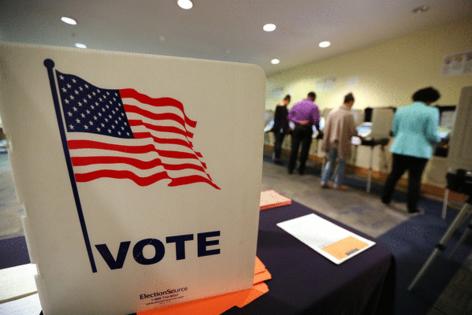Appeals court skeptical True the Vote's voter challenges were not intimidation
Published in News & Features
ATLANTA — An appellate court seemed skeptical that a district court judge considered whether True the Vote was trying to intimidate voters with mass challenges following Georgia’s 2020 presidential election.
A three-judge panel at the U.S. 11th Circuit Court of Appeals in Atlanta considered whether U.S. District Court Judge Steve Jones erred in ruling that the conservative group True the Vote did not intimidate voters with mass voter challenges. The lawsuit against the group was brought by Fair Fight, the voting rights group founded by Democrat Stacey Abrams.
U.S. District Judge Federico A. Moreno, a President George H.W. Bush appointee who sat on Tuesday’s panel, said the district court didn‘t do a separate analysis for attempted intimidation.
“He just rolled the attempt to the actual intimidation,” he said.
U.S. Circuit Judge Adalberto Jordan, a Barack Obama appointee, agreed, saying the district court might not have applied the correct legal standard for attempted voter intimidation.
In 2020, Fair Fight and its allies sued True the Vote, alleging the group’s founder, Catherine Engelbrecht, and its allies violated the National Voting Rights Act when they challenged the eligibility of 250,000 Georgia voters ahead of two runoff elections in 2021 that decided the political majority of the U.S. Senate. A vast majority of those challenges were dismissed by county election boards.
Jones ruled last year that there was inadequate evidence showing True the Vote coerced, intimidated or threatened voters. However, he said the group’s compiled lists of potentially ineligible voters “lacked reliability” and verged on “recklessness.”
The group’s data relied on spreadsheets listing the names of voters who might have submitted change of address forms to the U.S. Postal Service.
Fair Fight appealed Jones’ decision to the 11th Circuit, arguing the district court judge incorrectly applied the federal voter intimidation law. True the Vote argued that Fair Fight failed to show why Jones’ decision should be reversed, saying that the liberal group showed insufficient evidence to prove voter intimidation.
True the Vote’s attorney, Jake Evans, said no voter was ever directly contacted by True the Vote or its allies.
“The record is completely devoid of any defendant — True the Vote, Ms. Engelbrecht — operating with any intent to intimidate any voter,” Evans said.
Moreno asked Fair Fight’s attorney, Uzoma Nkwonta, if the court should send the case back down to a lower court to consider attempted intimidation.
Nkwonta told the panel that the district court could review the evidence Fair Fight submitted and reconsider actual and attempted intimidation.
Under Georgia law, residents within the same county can challenge the eligibility of voters they believe no longer live at their registration address. A challenged voter’s registration can be canceled and their ballot rejected if a county board of elections upholds the challenge.
Conservative activists have used this law to lodge hundreds of thousands of challenges since the 2020 presidential election against Georgia voters they believe to be ineligible.
After the 2021 runoff elections, where voters elected Democratic U.S. Sens. Jon Ossoff and Raphael Warnock, state lawmakers expanded Georgia‘s voter challenge law, explicitly stating it could be used to challenge an unlimited number of registrations.
In addition to its work on voter eligibility challenges, True the Vote is also behind the debunked election conspiracy movie “2000 Mules.” The movie’s allegations of widespread ballot drop box fraud in the 2020 presidential election were revealed to be based on “inaccurate information,” director Dinesh D‘Souza said in a statement.
The three-judge panel, composed of two appointees of Obama and one Bush appointee, did not specify when it would rule on the case, but the court’s decision could set a standard for states within the 11th Circuit, which includes Alabama, Florida and Georgia.
©2025 The Atlanta Journal-Constitution. Visit at ajc.com. Distributed by Tribune Content Agency, LLC.







Comments